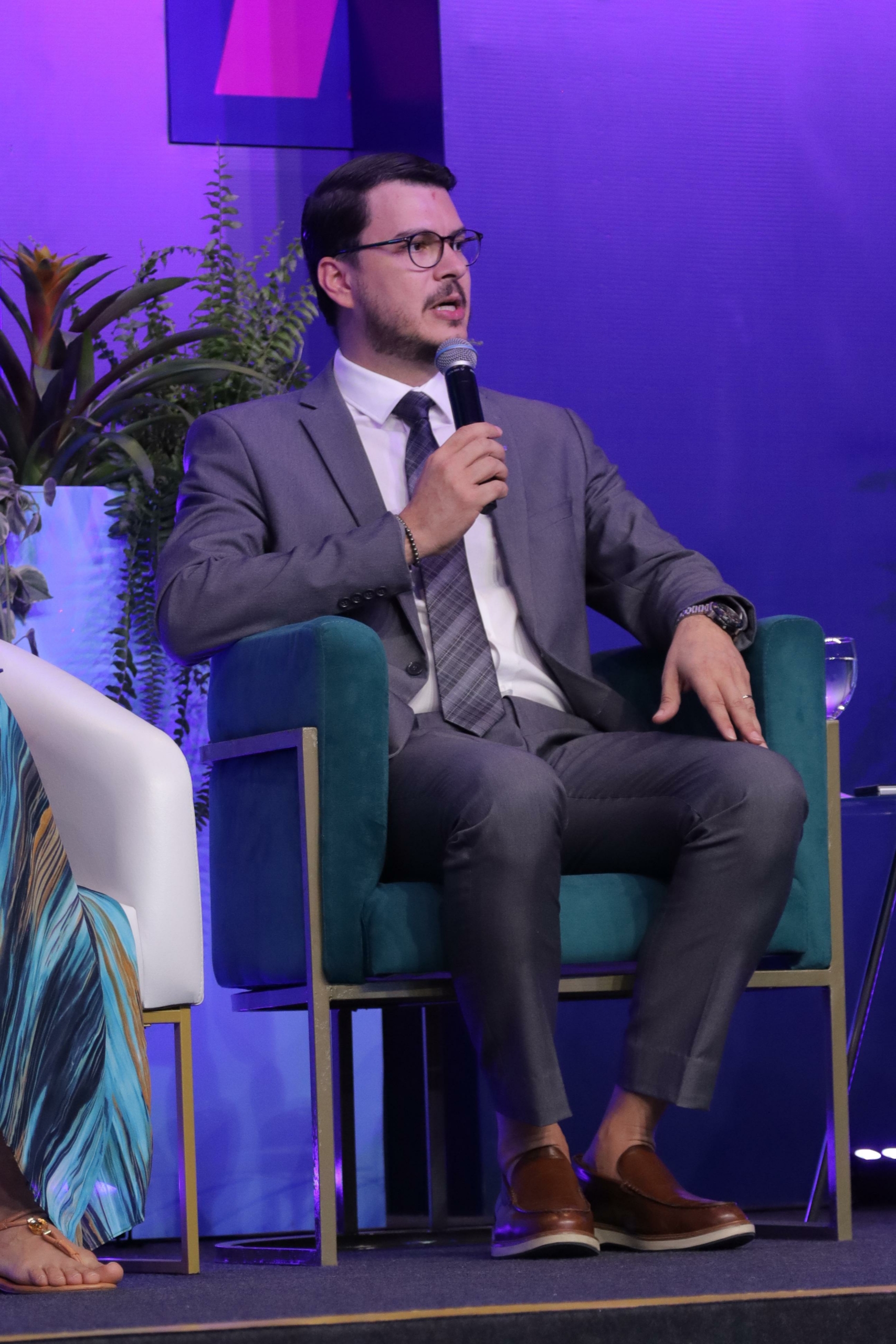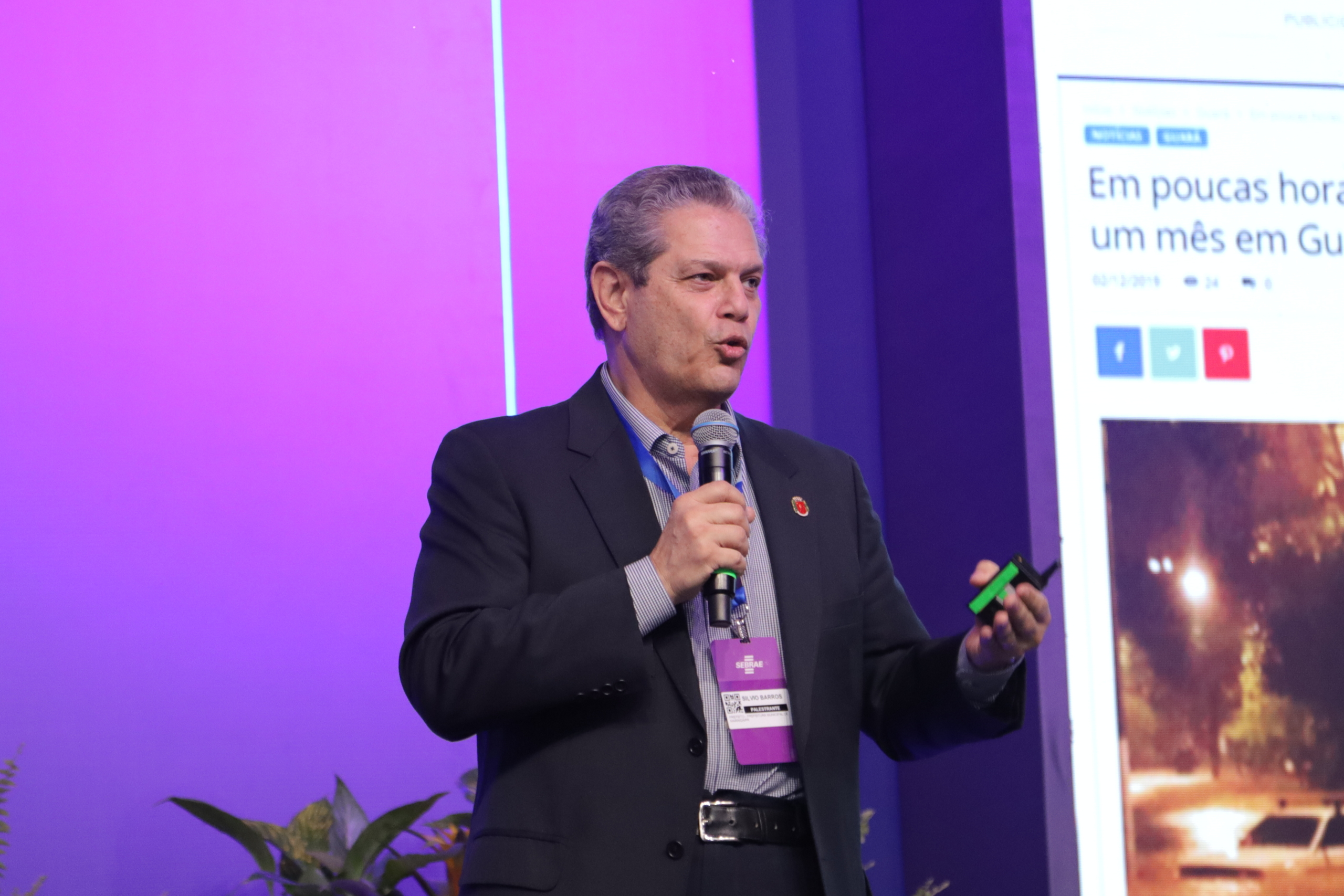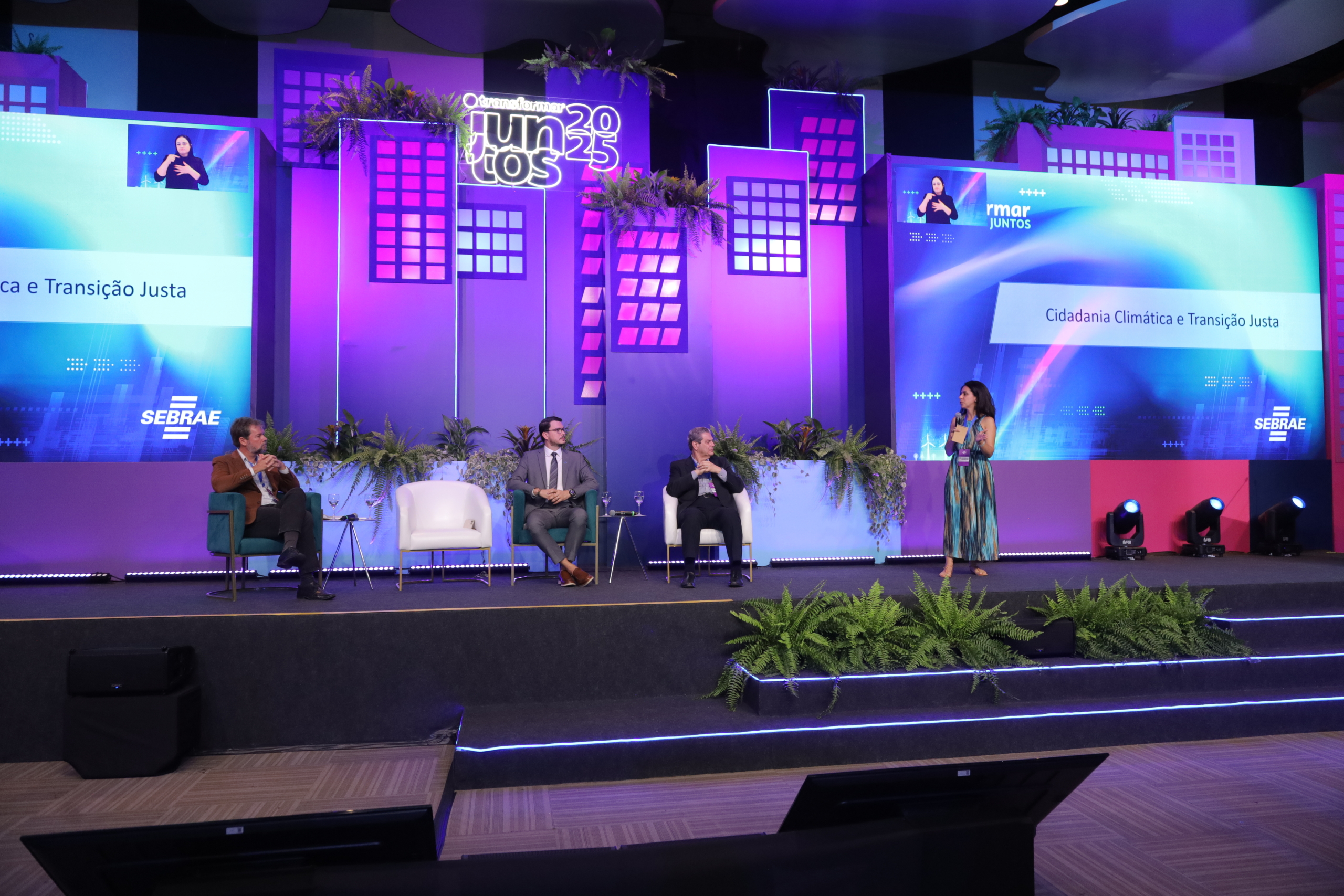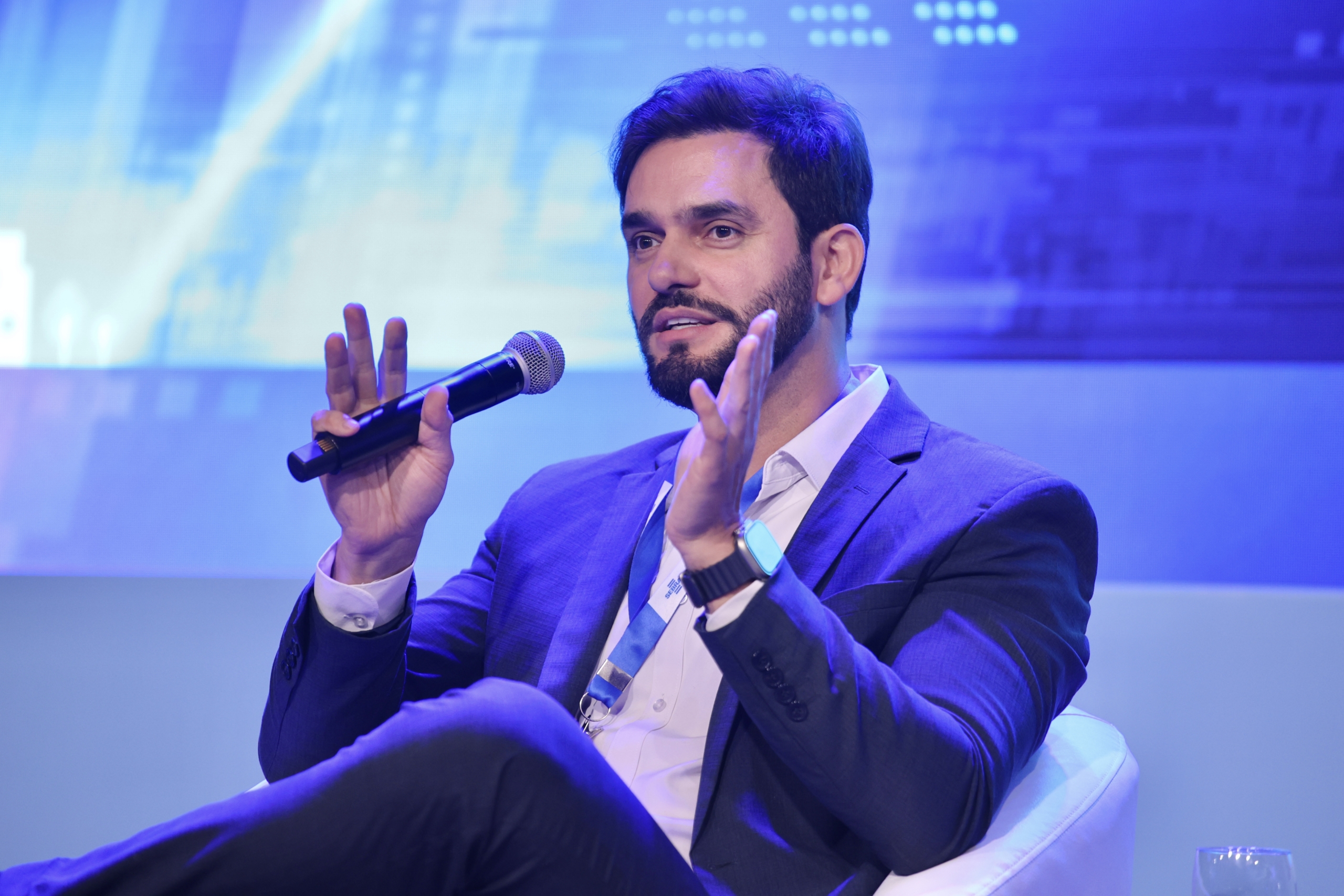Transform Together 2025: Climate Citizenship and Just Transition are Panel Topics

The afternoon program on the first day of Transformar Juntos 2025 brought together experts for a panel on climate citizenship and just transition. The discussion focused on the role of small businesses, civil society, and public institutions in building a new type of citizen, one more connected and active in addressing climate change and sustainability in their daily lives.
The meeting was attended by the mayor of Maringá, Paraná, Sílvio Barros; the deputy director of the Institute for Democracy and Sustainability (IDS Brasil), Marcos Woortman; and the director of the King's Brazil Institute at King's College London, Andreza Aruska. The panel was moderated by the technical director of Sebrae/MT, André Luiz Schelini.

We want to bring practices that can be implemented in every corner of this country, not only by individuals, but, above all, by municipalities, so that they are truly successful, capable of development and that people can prosper, live and, above all, have dignity and social justice so that this new economy can flourish and prosper.
André Luiz Schelini, technical director of Sebrae/MT.
Global climate change
For the mayor of Maringá, the responsibility for greenhouse gas reduction targets falls to the municipalities. "Brazil is accustomed to rights and very unaccustomed to duties. But citizenship will obviously be both. The climate issue is intertwined with this challenge, because we are living in the most dangerous time for humanity," says Sílvio.

Marcos Woortman pointed out that climate change is humanity's biggest challenge and a challenge for everyone.
"Our freedom to choose our future implies a responsibility. If you believe it's a right, it's a responsibility to pursue it. And if you believe it's a duty, that it's your duty, it's also a responsibility at every level," he says.
For Andreza Aruska, economic diversification is essential to prevent the disappearance of cities that depend on a few companies, such as mining companies. The lack of investment in small businesses reinforces the social and economic vulnerability of these municipalities' populations.

"Sovereign wealth funds generally end up investing in other industries that are also very prosperous, rather than in the region's small and micro-industries. It's necessary to truly create a trading network so that you can truly diversify the economic entities in these highly dependent cities," he concludes.
Industry and Innovation
Also in the afternoon, the panel Sector and Territory Integration from the Industry Perspective, moderated by the advisor to the Technical Directorate of Sebrae, Alessandro Machado, discussed alternatives to promote innovation directly in Brazilian municipalities.
The Superintendent of Innovation and Technology at Senai Nacional, Roberto de Medeiros Júnior, emphasized that the entity is in the territories to support workforce education and stimulate innovation. To expand industry participation and improve the economy, the Senai representative advised managers to reach out to industry federations in the states.
"The first step is to gather information about supply chains to connect. In this effort, you end up attracting a range of partners. Furthermore, it's important to work on the local vocation and how the municipality fits into the supply chain. Additionally, seek alliances and initiate dialogue to increase the sustainability of the region's industry," he noted.
In turn, Fabrício Silveira, superintendent of Industrial Policy at the National Confederation of Industry (CNI), highlighted the importance of promoting public policies based on evidence.

The first step is to mobilize existing resources and data to map opportunities and assess the region's capacity for development, challenges, and needs. Public managers must be closely connected to local economic actors.
Fabrício Silveira, superintendent of Industrial Policy at the National Confederation of Industry (CNI).
Finally, Rafael Wandrey, Market Relations Coordinator at the Brazilian Company for Industrial Research and Innovation (Embrapii), pointed out that the best way to foster more local innovative companies and drive sector development is to promote shared management. "It's less of an 'egosystem' and more of an innovation ecosystem. It's about mapping competencies. Establishing shared management with local stakeholders is crucial to differentiating one region from others," he concluded.
Transform Together
Sebrae's Transformar Juntos event features 70 activities scheduled for July 23-25 at the Royal Tulip in Brasília, Federal District. The event is primarily aimed at development agents, public administrators, and city and state government officials.
The diverse program will address topics crucial to the country's progress, including best practices in territorial development, joint action, associations, community banks, and social currencies.
Sustainability is a central pillar, with in-depth discussions on just energy transition, climate resilience, and smart cities. Entrepreneurship as a government policy will also be highlighted, reinforcing the importance of private initiative in local development.
agenciasebrae





